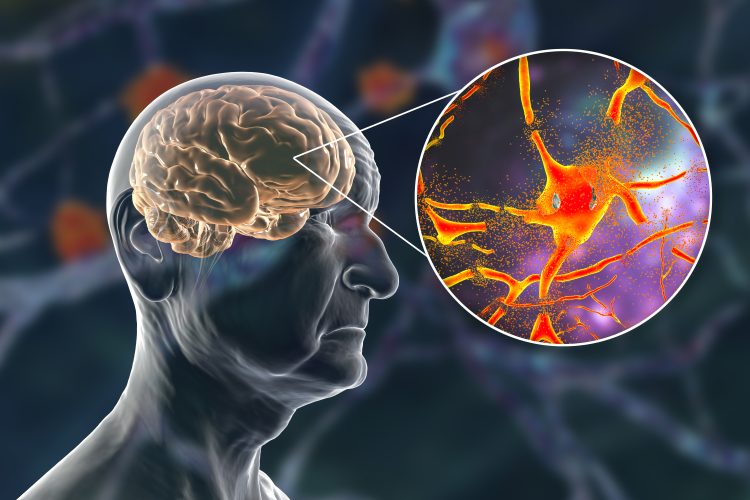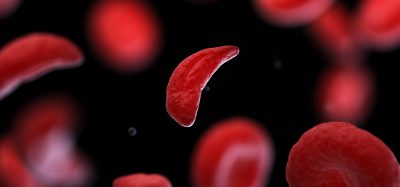Study aims to stop Alzheimer’s with stem cell infusions
Posted: 11 April 2025 | Drug Target Review | No comments yet
Researchers at UTHealth Houston have initiated a new stem cell therapy trial aimed at reducing neuroinflammation to prevent Alzheimer’s disease before symptoms emerge, an approach that could revolutionise treatment strategies, offering new hope for at-risk individuals.


Alzheimer’s disease is a devastating neurodegenerative disorder that affects millions worldwide. Characterised by the build-up of beta-amyloid plaques and tau protein tangles in the brain, the disease leads to cognitive decline, memory loss and eventually dementia. Now, a new stem cell therapy trial at UTHealth Houston is exploring ways to prevent and reduce neuroinflammation, potentially stopping Alzheimer’s disease before symptoms even appear.
Preclinical studies in animal models of Parkinson’s and Alzheimer’s disease have already shown promising results. Dr Claudio Soto, a leading researcher at UTHealth Houston, led studies in which stem cell therapy preserved memory in mice with Alzheimer’s-like brain changes.
Preclinical studies in animal models of Parkinson’s and Alzheimer’s disease have already shown promising results.
Not only did the stem cell treatments reduce inflammation in the mice’s brains, but they also allowed the animals to maintain normal cognitive function. In Parkinson’s disease models, treated mice continued to behave normally, suggesting that stem cell therapy could have protective effects on the brain’s function.
Understanding the role of neuroinflammation
While beta-amyloid and tau deposits are considered the primary culprits of Alzheimer’s, inflammation plays a significant role in the disease’s progression. According to Dr Paul E Schulz, principal investigator of the UTHealth Houston study, inflammation is the final step that leads to brain cell death.
“We have good medications to get rid of the amyloid and slow the progression of the disease, but not stop it,” Schulz explains. “We believe it’s not stopped because the downstream damage from inflammation has been set in motion. So, if we can get rid of both the beta-amyloid and decrease the inflammation, we may be able to preclude or significantly reduce the risk of getting Alzheimer’s disease.”
The stem cell therapy trial
The UTHealth Houston trial aims to determine whether stem cell therapy can reduce neuroinflammation before Alzheimer’s symptoms manifest. This Phase Ib/IIa open-label study will enrol 12 patients with presymptomatic Alzheimer’s disease. The stem cells are derived from the patient’s own fat, processed by Hope Biosciences, and then reintroduced into the body through four infusions over 13 weeks. PET imaging will be used to detect whether these stem cells effectively reduce brain inflammation, potentially preventing cell loss before dementia sets in.
The trial is sponsored by the Weston Brain Institute in Canada and led by Schulz and his team, including co-investigators Dr Javier Ortiz IV and clinical research coordinator Harshali Patel.
Building on previous research
This study builds upon earlier research at UTHealth Houston, which investigated the effects of stem cell therapy on traumatic brain injury (TBI) and stroke. These studies suggested that stem cells could help repair the brain by reducing inflammation and protecting neurons. However, since the blood-brain barrier remains closed in Alzheimer’s patients, researchers were unsure if stem cells could still have a positive impact.
Schulz explained: “With TBI and stroke, the blood-brain barrier opens up, so we weren’t sure the stem cells could help in a neurodegenerative disease where the blood-brain barrier remains closed. But inflammation seems to be the final item that leads to cell death.”
A potential game changer for Alzheimer’s treatment
The hope is that similar results can be achieved in humans. If successful, stem cell therapy could become a revolutionary approach to preventing Alzheimer’s disease by stopping inflammation before it causes irreversible damage.
For those at risk of Alzheimer’s, this study represents a beacon of hope. Researchers at UTHealth Houston are optimistic that their findings will lead to an effective strategy to prevent or significantly delay the onset of dementia.
For more information on the study, visit the Memory Disorders Research page at UTHealth Houston.
Related topics
Clinical Trials, Neurosciences, Regenerative Medicine
Related conditions
Dementia, Parkinson's, Stroke
Related organisations
Hope Biosciences, UTHealth Houston, Weston Brain Institute
Related people
Dr Claudio Soto, Dr Javier Ortiz IV, Dr Paul E. Schulz, Harshali Patel







